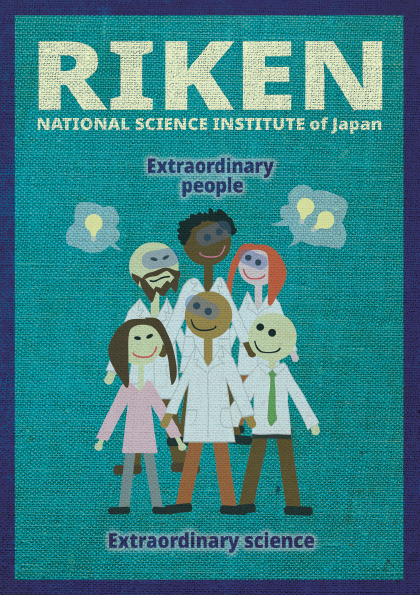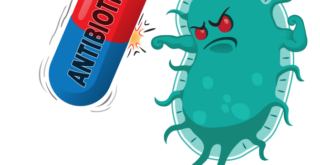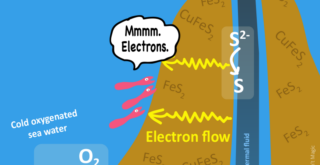Kylius: I know that you work with robots or should I say robotic researcher? Can you tell me more about it?
Masaki: One of the things I’m working on is the automation of science. Tohru Natsume of Robotic Biology Institute Inc. (RBI) and my boss Koichi Takahashi at RIKEN have created a robot for automation of biological experiments. This work was inspired in part by Ross King at the University of Manchester who created rather simple automation and robotics for use in biology called Adam. Ross focused his robotic researcher on a specific metabolic pathway in which the function was known but the genes were not. He wanted to predict the genes that were expressed throughout the pathway. So, combining machine learning for hypothesis testing and refinement with robotics for the physical labor he was able to identify the genes that participated in the pathway. One of the genes he identified was a new discovery, and so he had automated gene discovery.
Using his ideas and system as inspiration, our lab would like to automate life science research. One issue in Biology is that it’s easy to make errors. But, with robotics and artificial intelligence we can make the experiments neater and reduce the errors and biases. The physical movement and laboratory procedures of biology experiments always include variation and human error. This variation is always included in the results, and that makes the data difficult to interpret. Robots won’t make these errors, even when repeatedly doing the same job.
Kylius: How did you get involved in this field?
Masaki: Basically, I am a physics guy. My background is in neutrino particle physics, so it was quite a shock to see the state of biology. It seems that there is a lot of confusion in biology as a science.
The important thing is that in the classical scheme of science there is induction and deduction. If you do an experiment, you generate data. And by building a model that fits the data, the model can add to scientific knowledge. As we keep doing this we construct a database of knowledge and a history of knowledge. At the same time, we use the database to generate hypotheses, which are then tested experimentally to see if they fit to and explain natural phenomena. The results of an experiment can tell us if the theory is right or not. We would like to automate this whole process.
Kylius: I’m always surprised how many lab experiments are set up around a work week or the workday. People have to sleep and so a protocol has an overnight incubation step. That kind of thing is clearly just out of convenience. But you wouldn’t have to do that with a robotic researcher. So, I think it is a great idea. But you must hear some negative feedback as well.
Masaki: Absolutely! There is some negative feedback on the use of robots and AI, but I look at it from a philosophical point of view and I see the use of robots and AI as simply adding reliably to the knowledge database. But the history of science is not just smooth integration and addition to the knowledge database. There are paradigm shifts along the way like [itg-tooltip tooltip-content=”<p><strong>Thomas Kuhn</strong> was a physicist who coined the term &aquot;paradigm shift&aquot; in his famous book, &aquot;The Structure of Scientific Revolutions&aquot;</p>”]Thomas Kuhn[/itg-tooltip] told us. So, to really be groundbreaking, we will somehow need to achieve a paradigm shift with this concept of using robotics for automating scientific research.

Figure 1. ? + ? = ?
Kylius: I’ve long thought of science as replacing religion as a system for understanding the world but now I wonder if science replaced religion, what will replace science?
Masaki: That’s too big of a question! I don’t know. Maybe science will be replaced by robots and artificial intelligence and maybe we will be replaced by robots too! Or robots will keep humans around as pets.
Kylius: I think this where people lose enthusiasm for AI …
Masaki: Well my interest is investigating how the world works. That is the only point. (laughing) I’m not too worried about the future because I won’t be there.
Kylius: Spoken like a true particle physicist!
Masaki: And a good way to investigate how the world works is with robots and AI.
Kylius: On the subject of particle physics, it seems that the level of certainty in physics is usually much higher than biology. One in a billion level of certainty rather than one in twenty…
Masaki: Oooookaaaaay. Actually, I don’t really agree. I think more biologists believe in absolute scientific truths. That if the electron is here, then it is here. But to a physicist the electron isn’t here. There is just a probability that it’s here. Then we can try to build the best description of this system. We can’t ever be sure we’ve found the best description, but we keep looking.
Kylius: So, you bring that philosophy to biology?
Masaki: Well I thought biologists must be going about science in the same way as physicists. I thought I knew what science is, but I’ve found that biology is quite different. I think physicists see a very simple world.
Kylius: Biologists are confused!
Masaki: I don’t want to put myself in a confusing world. I hope to find very simple and understandable methods for biology. I understand there is a long history in biology but I don’t think the same methods will work in the future. Robots can be one of the things to help simplify biology research.
Kylius: I know that you work with robots, or should I say robotic researcher? Can you tell me more about it?
Masaki: One of the things I’m working on is the automation of science. Tohru Natsume of Robotic Biology Institute Inc. (RBI) and my boss Koichi Takahashi at RIKEN have created a robot for automation of biological experiments. This work was inspired in part by Ross King at the University of Manchester who created rather simple automation and robotics for use in biology called Adam. Ross focused his robotic researcher on a specific metabolic pathway in which the function was known but the genes were not. He wanted to predict the genes that were expressed throughout the pathway. So, combining machine learning for hypothesis testing and refinement with robotics for the physical labor he was able to identify the genes that participated in the pathway. One of the genes he identified was a new discovery, and so he had automated gene discovery.

Figure 1. ? + ? = ?
Using his ideas and system as inspiration, our lab would like to automate life science research. One issue in Biology is that it’s easy to make errors. But, with robotics and artificial intelligence we can make the experiments neater and reduce the errors and biases. The physical movement and laboratory procedures of biology experiments always include variation and human error. This variation is always included in the results, and that makes the data difficult to interpret. Robots won’t make these errors, even when repeatedly doing the same job.
Kylius: How did you get involved in this field?
Masaki: Basically, I am a physics guy. My background is in neutrino particle physics, so it was quite a shock to see the state of biology. It seems that there is a lot of confusion in biology as a science.
The important thing is that in the classical scheme of science there is induction and deduction. If you do an experiment, you generate data. And by building a model that fits the data, the model can add to scientific knowledge. As we keep doing this we construct a database of knowledge and a history of knowledge. At the same time, we use the database to generate hypotheses, which are then tested experimentally to see if they fit to and explain natural phenomena. The results of an experiment can tell us if the theory is right or not. We would like to automate this whole process.
Kylius: I’m always surprised how many lab experiments are set up around a work week or the workday. People have to sleep and so a protocol has an overnight incubation step. That kind of thing is clearly just out of convenience. But you wouldn’t have to do that with a robotic researcher. So, I think it is a great idea. But you must hear some negative feedback as well.
Masaki: Absolutely! There is some negative feedback on the use of robots and AI, but I look at it from a philosophical point of view and I see the use of robots and AI as simply adding reliably to the knowledge database. But the history of science is not just smooth integration and addition to the knowledge database. There are paradigm shifts along the way like [itg-tooltip tooltip-content=”<p><strong>Thomas Kuhn</strong> was a physicist who coined the term &aquot;paradigm shift&aquot; in his famous book, &aquot;The Structure of Scientific Revolutions&aquot;</p>”]Thomas Kuhn[/itg-tooltip] told us. So, to really be groundbreaking, we will somehow need to achieve a paradigm shift with this concept of using robotics for automating scientific research.
Kylius: I’ve long thought of science as replacing religion as a system for understanding the world but now I wonder if science replaced religion, what will replace science?
Masaki: That’s too big of a question! I don’t know. Maybe science will be replaced by robots and artificial intelligence and maybe we will be replaced by robots too! Or robots will keep humans around as pets.
Kylius: I think this where people lose enthusiasm for AI …
Masaki: Well my interest is investigating how the world works. That is the only point. (laughing) I’m not too worried about the future because I won’t be there.
Kylius: Spoken like a true particle physicist!
Masaki: And a good way to investigate how the world works is with robots and AI.
Kylius: On the subject of particle physics, it seems that the level of certainty in physics is usually much higher than biology. One in a billion level of certainty rather than one in twenty…
Masaki: Oooookaaaaay. Actually, I don’t really agree. I think more biologists believe in absolute scientific truths. That if the electron is here, then it is here. But to a physicist the electron isn’t here. There is just a probability that it’s here. Then we can try to build the best description of this system. We can’t ever be sure we’ve found the best description, but we keep looking.
Kylius: So, you bring that philosophy to biology?
Masaki: Well I thought biologists must be going about science in the same way as physicists. I thought I knew what science is, but I’ve found that biology is quite different. I think physicists see a very simple world.
Kylius: Biologists are confused!
Masaki: I don’t want to put myself in a confusing world. I hope to find very simple and understandable methods for biology. I understand there is a long history in biology but I don’t think the same methods will work in the future. Robots can be one of the things to help simplify biology research.
Further reading:
[vifblike]

kylius wilkins
Kylius is the English Language Science Communicator for RIKEN QBiC in Suita, Osaka
I’m trained as a veterinarian but I love talking to particle physicists! When I’m not working, I like to watch my two boys play baseball, walk in the woods, eat raw fish, and soak in onsens.










